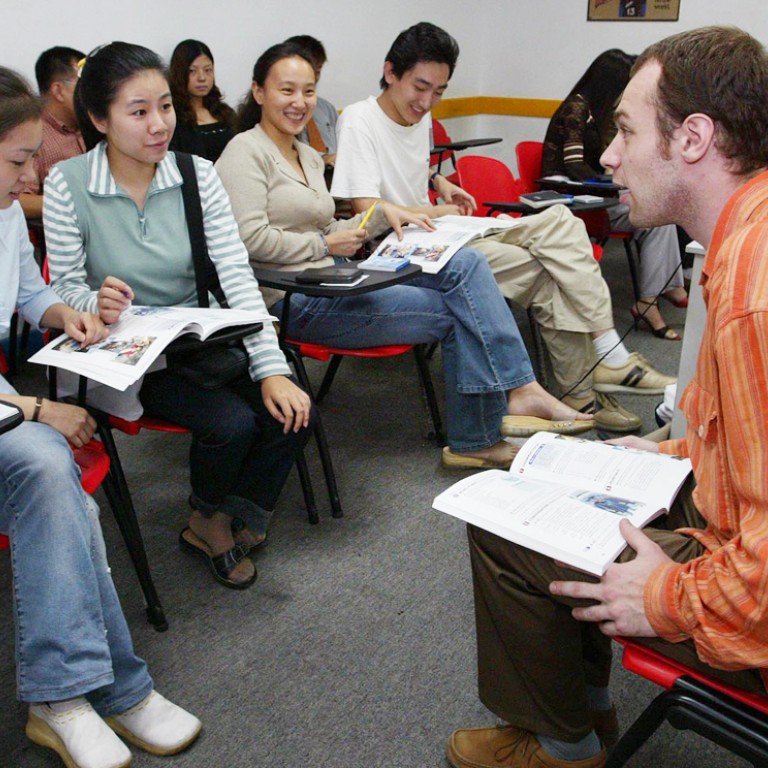
Beijing's crackdown on English teachers vital to protect pupils
Demand for foreign English teachers on the mainland is so great that getting a job can be as simple as submitting a résumé. Background checks, proof of qualifications, references and even work visas may not even be asked for.
Demand for foreign English teachers on the mainland is so great that getting a job can be as simple as submitting a résumé. Background checks, proof of qualifications, references and even work visas may not even be asked for by those involved in schools that are more about financial gains than education. The boom has attracted all-comers from overseas, some with genuine teaching experience, the vast majority unqualified to front a classroom. Authorities in Beijing are rightly putting in place rules that, if enforced, will regulate an industry that lacks standards and safeguards.
Child sex scandals in Beijing and Nanjing last year prompted the changes. A lack of background checks meant that two foreigners, one with convictions for child pornography in the US, the other wanted for questioning by British police for child sex offences, had been able to teach English to children. That was troubling for parents, but also highlighted the flaws of an industry estimated to be worth about 30 billion yuan (HK$38 billion) and growing rapidly in line with the insatiable demand to understand and speak English. An environment that allows for quick and easy money to be made attracts not only the criminal, but also the unqualified and unscrupulous.
That is problematic for genuine schools and teachers; reputations have been affected and scams abound. For some private schools and language institutes, teachers are determined to be good not by what they know, but how popular they are with students, how few demands they make and how willing they are to do as they are told. Requirements are to engage in simple conversation and keep students coming back. A consequence is little of substance is taught or learned.
Guidelines taking effect in Beijing at the end of next month require background checks and at least five years' experience or equivalent qualifications. Enforcement will better protect students but will also likely create teacher shortages. It will take time for the industry to adapt, although such action is essential nationwide if there is to be safe and productive learning.

